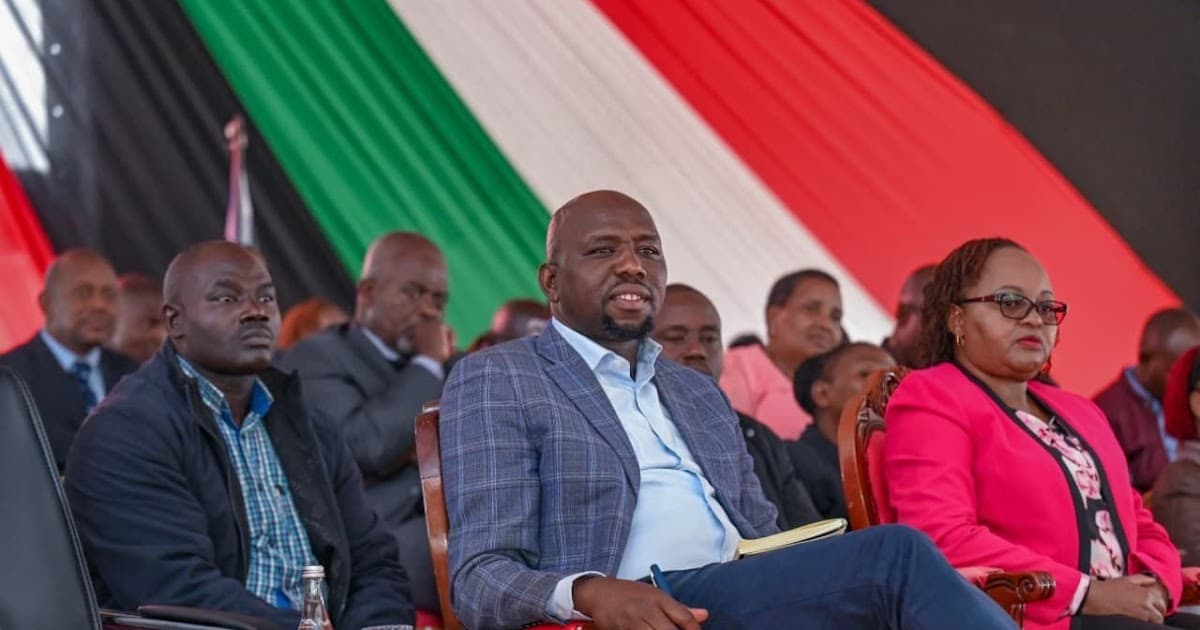We're loading the full news article for you. This includes the article content, images, author information, and related articles.
Interior CS Kipchumba Murkomen has overturned former Deputy President Rigathi Gachagua’s 2024 suspension of eight chiefs in Kirinyaga, reinstating them after they were removed for allegedly failing to curb illicit liquor in their areas.

Kerugoya, Kenya — Interior Cabinet Secretary Kipchumba Murkomen has reinstated eight chiefs and sub-chiefs in Kirinyaga County, overturning their suspension imposed in February 2024 during a crackdown on illicit brews spearheaded by then–Deputy President Rigathi Gachagua. The administrators, drawn from areas including Mutithi, Kathiga, and Ngomongo, had been interdicted after toxic liquor claimed more than 20 lives in the region.
Speaking at a community security forum in Kirinyaga, Murkomen said the officers had “suffered enough” and would return to their posts immediately. He defended the administrators, arguing they had been unfairly punished for a problem beyond their control. “It was not their fault. They were fighting illicit brew, but when suspects get to court, they get released,” Murkomen remarked.
Murkomen emphasized that systemic weaknesses — including the ease with which offenders secure release from courts — had undermined enforcement. He said the government would focus on strengthening institutional support for chiefs rather than making them scapegoats.
The reinstatement marks a policy shift from Gachagua’s tenure. The former deputy president had adopted a zero-tolerance stance on illicit alcohol, ordering suspensions of local administrators who failed to stamp out the trade. He had also urged the continuation of his campaign after leaving office, framing the fight against toxic liquor as a moral and social imperative.
Murkomen’s move signals a softer approach that prioritizes collaboration over punishment. Instead of targeting local officials, the Interior Ministry plans to intensify broader enforcement, regulation, and rehabilitation initiatives to counter the sale of toxic liquor.
Residents in Mwea West welcomed the reinstatement, noting that chiefs play a critical role in local administration and community security. Many expressed hope that the officers, now backed by the national government, will be better positioned to coordinate efforts against illicit alcohol while maintaining other essential administrative duties.
Illicit brews remain a national challenge, often linked to poverty, weak enforcement, and corruption in supply chains. Analysts argue that sustained progress will require not only crackdowns but also economic alternatives for brewers, stronger legal deterrents, and community-based rehabilitation.
Murkomen’s decision appears to reflect that broader understanding: tackling the roots of illicit liquor without undermining grassroots governance.
Keep the conversation in one place—threads here stay linked to the story and in the forums.
Sign in to start a discussion
Start a conversation about this story and keep it linked here.
Other hot threads
E-sports and Gaming Community in Kenya
Active 9 months ago
The Role of Technology in Modern Agriculture (AgriTech)
Active 9 months ago
Popular Recreational Activities Across Counties
Active 9 months ago
Investing in Youth Sports Development Programs
Active 9 months ago
Key figures and persons of interest featured in this article